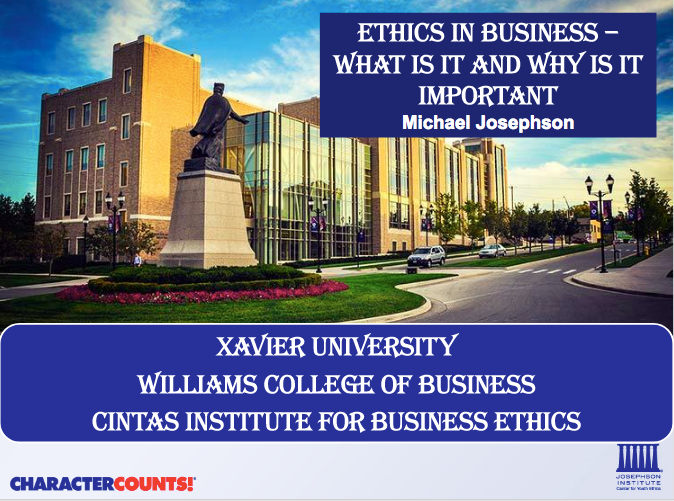I prepared a condensed summary of business ethics issues and strategies to a class at Xavier University. If you’re interested, you can find the slides here.
Avoiding Unfair Conduct
One of the problems with interpreting the concepts of fairness and justice is that so many factors can go into the notion of a fair judgment. There is rarely one single result dictated by ethical analysis. Consequently, we often do not know what is truly fair. We do, however, often know what is unfair, and our first obligation is to …
Rationalizations – The Enemy of Integrity: Twelve Common Rationalizations and Excuses to Avoid
Everyone is ethical in their own eyes. Rationalizations are the most potent enemy to integrity. They work like an anesthetic to our consciences allowing us to avoid the pain of guilt when we don’t live up to our values. We want to think well of ourselves so much that we develop strategies to convince ourselves that we are better than …
Decision Making Models: Kant’s Categorical Imperative
According to Immanuel Kant (1724-1804), the moral character of an action depends solely on the principle behind it – not upon the consequences it produces. Ethical obligations are “higher truths,” which we must obey regardless of the results. According to Kant, moral obligations are absolute and do not allow for exceptions or extenuating circumstances. A major virtue of Kant’s duty …


